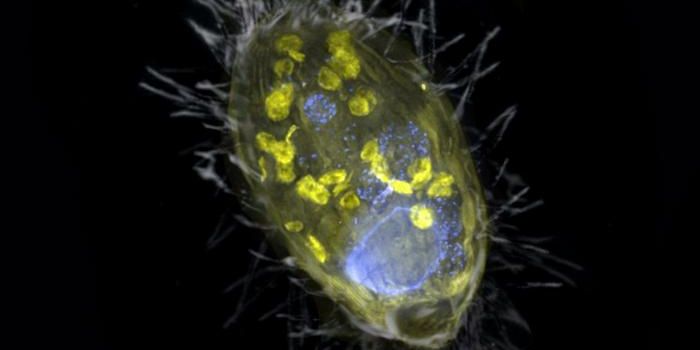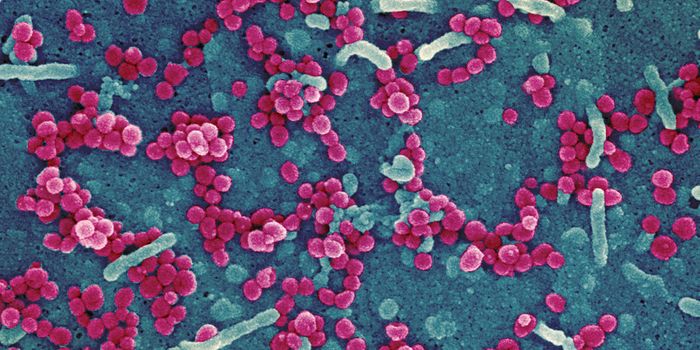As news of the Zika virus flooded the media for the past few months, efforts to control the mosquito population have surged. The U.S. Food and Drug Administration (FDA) is considering implementing a new control method in a Florida community to reduce the risk of mosquito-borne diseases like Zika, dengue, and chikungunya, but many residents aren’t convinced that these viruses are a big risk.
Researchers from the Johns Hopkins University Bloomberg School of Public Health published a new study in
PLOS Current Outbreaks surveying the opinions of the Florida residents, located in a small Florida Keys community called Key Haven.

“Public health officials are going to be faced with important decisions about mosquitoes and how to best protect citizens," said Meghan McGinty, MPH, MBA, PhD. “People will have objections and it is critical for them to be heard. Our research provides a starting point to understand how the community feels and to begin a dialogue about how to address mosquito-borne diseases."
Over 450 households in Key Haven received surveys in July 2015, and the researchers received 89 responses, where they found a 50-50 split of residents who considered mosquitoes a nuisance and those who did not. Regardless, two-third of the responding residents expressed a need to reduce the mosquito population in their community, but less than 40 percent of the respondents believed that the best way to do so was to use genetically modified mosquitoes.
The novel control method the FDA intends to try involves releasing a genetically modified male population of a mosquito species called
Aedes aegypti. This specific type of mosquito is known to carry Zika virus, dengue, and chikungunya. Scientists have genetically modified these males to, once they mate with a female, produce offspring with a defective gene that kills them. With some success in Brazil and Panama, testing the control method in the Florida Keys is the next logical step, since the region spreading from Southern Florida to Southern Texas and Hawaii are thought by experts to be the highest-risk locations for experiencing future Zika virus outbreaks.
From the survey responses, the researchers from the PLOS Current Outbreaks study saw a lack of support for implementing the method because of a fear of genetic modification. Residents seem concerned that welcoming genetically modified organisms (GMOs) now opens the door for more, unwanted, GMOs in their community. However, 63 percent of the respondents were at least “a little worried” about being infected with dengue or chikungunya. The residents were not asked for opinions about the Zika virus because it was not of national concern at the time of the survey. Additionally, some residents were concerned about the stability of the local ecosystem if mosquitoes were eliminated from the food chain.
“We need to have an honest conversation about where this control method does, or does not, fit in,” said Crystal Boddie, MPH.
Dengue is caused by one of four viruses, all transmitted by the
Aedes aegypti mosquito. A severe form of the infection results in a hemorrhagic fever that can be fatal if not treated quickly, characterized by high fever, severe headache, joint pain, muscle and bone pain, rash, and mild bleeding. The Centers for Disease Control and Prevention (CDC) estimates over 100 million cases of dengue worldwide each year. Between 2009 and 2010, a dengue outbreak occurred in Key West, affecting 88 residents. Since then, only transient cases have come up, most thought to be due to travel.
Chikungunya is another viral disease spread by the
Aedes aegypti mosquito, with similar symptoms to dengue. There is no cure for chikungunya, only symptom-relieving treatments, and joint pain can often persist for several months or years. The last known outbreaks of chikungunya in Florida were in 2014.
Lastly, Zika virus is yet another mosquito-borne virus that scientists are quickly trying to understand and control. Like chikungunya and dengue, infected persons with Zika virus experience fever, rash, joint pain, and also conjunctivitis. What has people especially concerned about this infection is its effect on infants when their mothers contract the virus during pregnancy. The virus is believed to cause microcephaly, a condition where an infant is born with a smaller head than normal.
The researchers who conducted the survey study are hoping to “address head-on the objections of residents,” in attempt to build preparedness for the worst case scenario: Zika outbreaks in the Florida Keys. Other methods of controlling mosquitoes include draining water to eliminate mosquito breeding grounds and treating standing water with larvicides and insecticides. Researchers are also hopeful that opinions of residents in areas like Key Haven will change with the influx of media coverage surrounding Zika virus.
Sources:
Johns Hopkins University Bloomberg School of Public Health,
The World Health Organization,
CDC,
Florida Health










